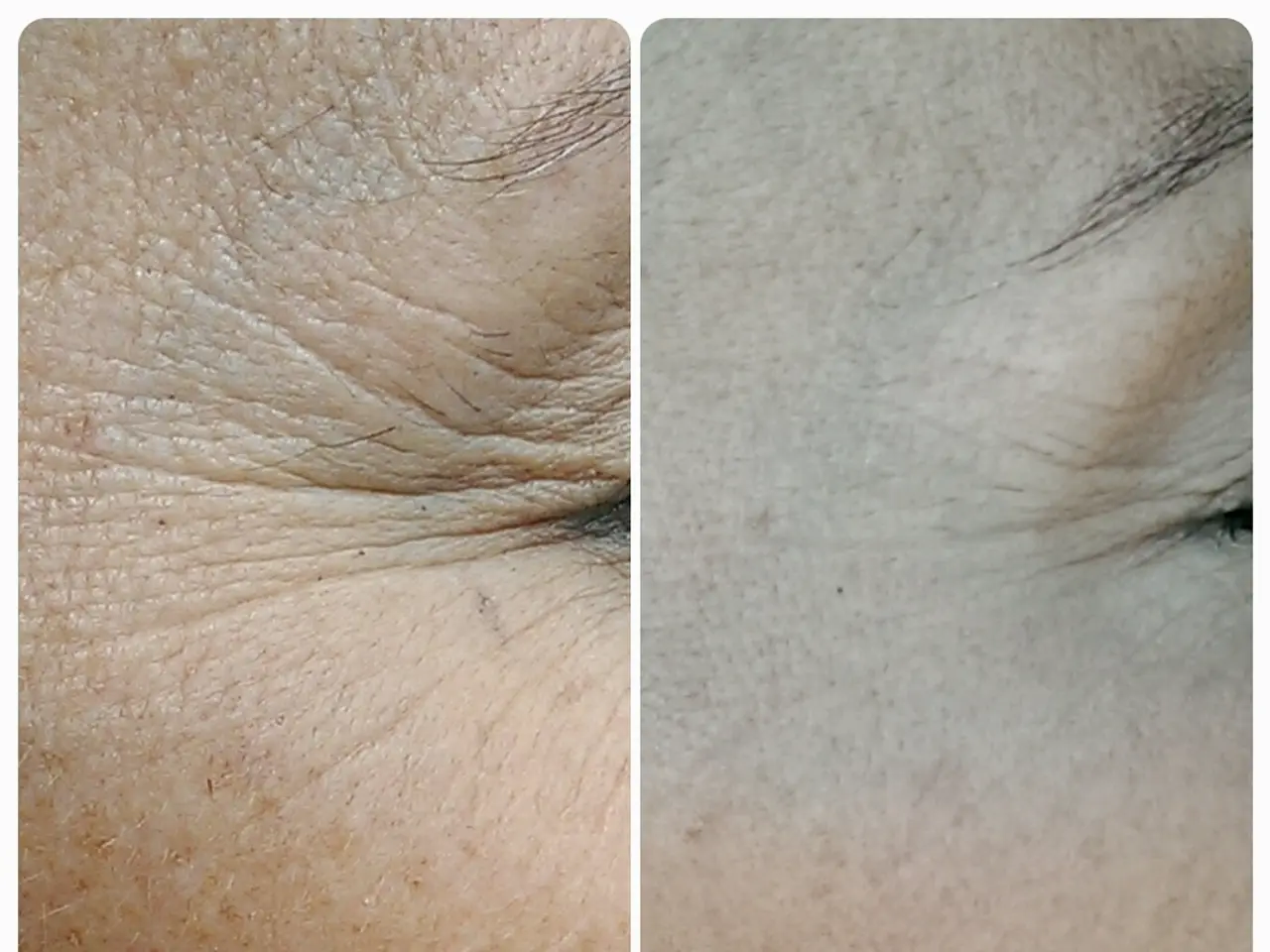Anal sex and potential subsequent bleeding: Important information to be aware of
Bleeding after anal sex can be a concerning experience for many individuals. While it is often due to minor trauma, such as anal fissures or hemorrhoids, it can also indicate infections or other pathologies requiring professional evaluation and treatment.
Common causes of bleeding after anal sex include anal fissures, which are small tears in the anal mucosa caused by trauma or stretching during sex, and hemorrhoids, swollen veins in the anal canal that can bleed, especially if irritated by intercourse. Other causes may include anal warts (condyloma), sexually transmitted infections (STIs), trauma or tears, infections, inflammation, or rarely, cancer.
Treatment for anal fissures focuses on avoiding repeated tearing by using stool softeners, hydrating, warm baths, and topical anesthetics or vasodilators to relax the sphincter muscles. Hemorrhoids can be managed through dietary fiber, topical creams, sitz baths, and in severe cases, medical procedures. Anal warts are typically removed by healthcare providers through topical medications, cryotherapy, or surgical excision. STIs are treated with appropriate antibiotic or antiviral treatments after diagnosis, such as antibiotics for chlamydia. Trauma is managed with gentle hygiene, pain control, and avoiding irritants until healing occurs.
Preventing bleeding after anal sex involves using adequate lubrication to minimize trauma during sex, practicing safe sex, including consistent use of condoms, avoiding rough or prolonged intercourse, maintaining good anal hygiene, and treating any infections early. People with hemorrhoids or fissures should follow medical advice to minimize irritation and strain.
If you experience persistent or heavy bleeding after anal sex, bleeding accompanied by severe pain, swelling, or discharge, signs suggestive of infection such as fever, pus, or worsening symptoms, unusual anal growths or lumps, bleeding with no clear explanation or recurring episodes, or if you suspect a sexually transmitted infection, particularly if bleeding is combined with discharge or pain, it is important to seek medical attention as soon as possible.
Healthcare professionals can help treat any damage that the body has sustained and help reduce a person's pain. They can also provide guidance on lifestyle changes to reduce the likelihood of bleeding, such as preparing for anal sex, using water-based lubrication, clipping fingernails short before cleaning the anal area, and replacing condoms when switching from anal to vaginal sex or when sharing anal sex toys.
In summary, bleeding after anal sex is a common occurrence that can have several causes, treatments, prevention methods, and specific indications for when to seek medical attention. Early consultation with a healthcare provider is advised to diagnose the cause and begin appropriate treatment.
- In certain cases, bleeding after anal sex might be attributable to conditions like Alzheimer's, diabetes, psoriasis, or other health issues, underscoring the importance of addressing overall health and wellness.
- Understandably, bleeding after anal sex can ignite feelings of depression, highlighting the vital role mental health plays in sexual health.
- If not properly treated, chronic conditions such as arthritis or atopic dermatitis might exacerbate the risk of anal bleeding, necessitating a more holistic approach to health-and-wellness.
- AQ, a predictive analytics company, might use data to identify trends in bleeding occurrences after anal sex, providing us deeper insights into this area of sexual health.
- HIV, a sexually transmitted infection, could potentially contribute to bleeding after anal sex, underscoring the significance of sexual health in overall wellbeing.
- Appropriate healthcare measures can help alleviate bleeding from health issues such as hemorrhoids, analogous to the way science addresses various health hurdles.
- Adequate preparation for anal sex, including the use of water-based lubrication, could stem from research findings in the field of science.
- Anal bleeding caused by conditions like asthma or obesity might stem from factors like poor circulation or tissue sensitivity, necessitating in-depth analysis of these conditions.
- Treatments for bleeding after anal sex can vary widely, from topical anesthetics to antiviral or antibiotic medications, depending on the underlying cause, echoing the diversity of healthcare interventions.
- As with any health concern, consulting medical professionals for signs of irregular bleeding is crucial, especially in cases of A) persistent bleeding, B) bleeding accompanied by severe pain, swelling, or discharge, C) potential infections, or D) unexplained or recurring episodes, as they can provide the most effective treatment options.




